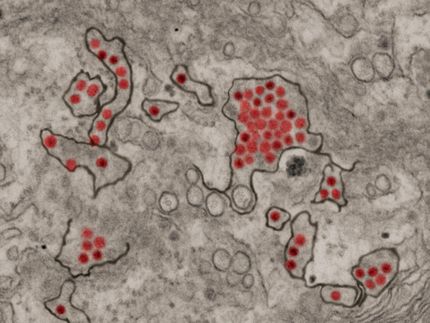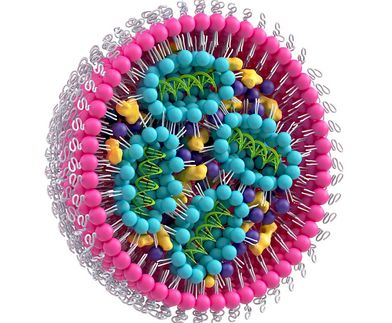GSK and CureVac announce strategic mRNA technology collaboration
Companies to collaborate on mRNA vaccine and monoclonal antibody research programmes in infectious diseases
GlaxoSmithKline plc and CureVac announced the signing of a strategic collaboration agreement for the research, development, manufacturing and commercialisation of up to five mRNA-based vaccines and monoclonal antibodies (mAbs) targeting infectious disease pathogens. The collaboration complements GSK’s existing mRNA capabilities with CureVac’s integrated mRNA platform.

Peggy_Marco, pixabay.com, CC0
mRNA (messenger RNA) technology is a rapidly progressing, cutting-edge platform for the development of new vaccines and medicines, potentially expanding the range of diseases which can be prevented or treated, while also promising to significantly speed up development and manufacturing. mRNA enables protein synthesis in the human body, carrying the genetic code required for cells to manufacture and express proteins. By using mRNA technology in vaccines and medicines, specific proteins, or antigens, can be produced by the body’s own cells, enabling the human immune system to prevent or fight disease.
CureVac’s leadership in mRNA technology, along with its mRNA manufacturing capability, complements GSKs existing scientific leadership in vaccines, including GSKs own self-amplifying mRNA (SAM) vaccine technology platform, and further builds on GSKs growing capability in mAbs innovation, aligned to its R&D focus on the science of immunology. Advancing mRNA-based vaccine and treatment technologies is also expected to play a role in further improving response against future pandemics.
Roger Connor, President GSK Vaccines, said: “GSK’s self-amplifying mRNA (SAM) vaccine technology has shown us the potential of mRNA technology to advance the science of vaccine development, and CureVac’s experience complements our own expertise. Through the application of mRNA technology, including SAM, we hope to be able to develop and scale up advanced vaccines and therapies to treat and prevent infectious diseases quicker than ever before.”
Dr. Franz-Werner Haas, acting Chief Executive Officer of CureVac, added: “We are delighted to partner with GSK. With this collaboration, we are gaining a world-class partner whose expertise and global footprint will allow us to further develop and translate the value of our platform into potential products for the world.”
The companies will combine their mRNA expertise on development opportunities across a range of infectious disease pathogens, selected with the potential to best leverage the advantages of this platform technology, while addressing significant unmet medical need and economic burden. CureVac’s existing COVID-19 mRNA and rabies vaccines research programmes are not included in the collaboration.
Under the terms of the deal, GSK will make an equity investment in CureVac of £130m (€150m), representing close to a 10% stake, an upfront cash payment of £104m (€120m) and a one-time reimbursable payment of £26m (€30m) for manufacturing capacity reservation, upon certification of CureVac’s commercial scale manufacturing facility currently under construction in Germany.
CureVac will be eligible to receive development and regulatory milestone payments of up to £277m (€320m), commercial milestone payments of up to £329m (€380m) and tiered royalties on product sales.
GSK will fund R&D activities at CureVac related to the development projects covered by the collaboration. CureVac will be responsible for the preclinical- and clinical-development through Phase 1 trials of these projects, after which GSK will be responsible for further development and commercialization. CureVac will be responsible for the GMP manufacturing of the product candidates, including for commercialization, and will retain commercialization rights for selected countries for all product candidates.
Other news from the department business & finance
Most read news
More news from our other portals
See the theme worlds for related content
Topic world Antibodies
Antibodies are specialized molecules of our immune system that can specifically recognize and neutralize pathogens or foreign substances. Antibody research in biotech and pharma has recognized this natural defense potential and is working intensively to make it therapeutically useful. From monoclonal antibodies used against cancer or autoimmune diseases to antibody-drug conjugates that specifically transport drugs to disease cells - the possibilities are enormous

Topic world Antibodies
Antibodies are specialized molecules of our immune system that can specifically recognize and neutralize pathogens or foreign substances. Antibody research in biotech and pharma has recognized this natural defense potential and is working intensively to make it therapeutically useful. From monoclonal antibodies used against cancer or autoimmune diseases to antibody-drug conjugates that specifically transport drugs to disease cells - the possibilities are enormous























































